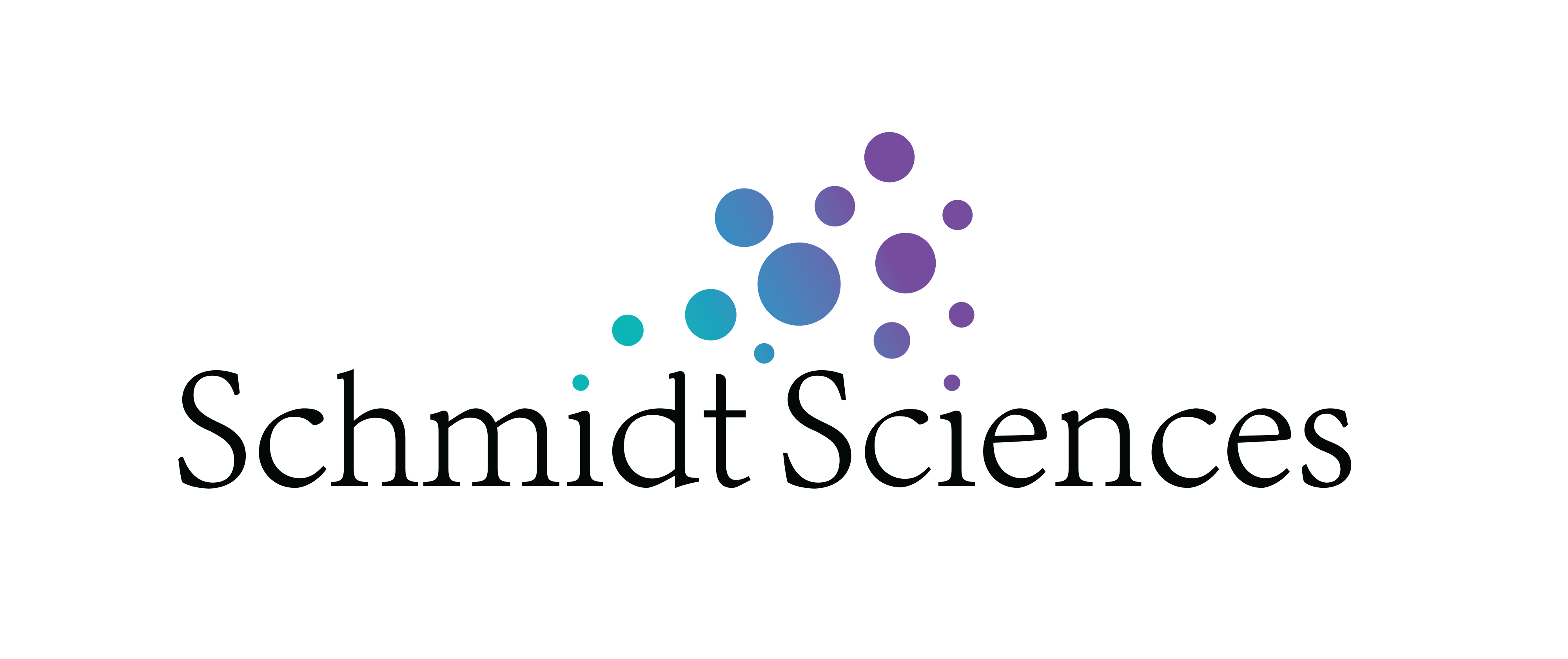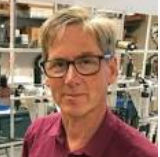The Eric & Wendy Schmidt AI in Science Postdoctoral Fellowship
A Program of Schmidt Sciences at UC San Diego
The Eric and Wendy Schmidt AI in Science Postdoctoral Fellowship, a program of Schmidt Sciences at UC San Diego led by Faculty Director Tara Javidi and Education Associate Director Ilkay Altıntaş, leverages UC San Diego’s place at the forefront of Artificial Intelligence research to train the next generation of scientific leaders pioneering the use of AI in STEM. Established with the generous support of Schmidt Sciences, a philanthropic initiative of Eric and Wendy Schmidt, this prestigious program annually supports 10-20 Postdoctoral Fellows with a two-year fellowship as they learn and apply AI techniques to their research in the engineering, mathematical, and natural sciences. The program provides a unique, cross-campus ecosystem of training and scientific discovery consisting of three interconnected core components:
- Community formation of a diverse cohort of researchers and scholars from across the natural and engineering sciences with an interest in the use of AI methods to accelerate scientific discoveries;
- Training modules in the form of courses, seminars, and panels pulling from established pedagogical areas of excellence designed to provide postdoctoral fellows with core AI technical competencies; and
- Co-mentoring to bridge the gap between STEM and AI, including at least one STEM faculty as the primary mentor and nominator, and a second AI/method faculty in the role of co-mentor.
Schmidt AI in Science Postdocs also receive comprehensive foundational training in scientific leadership, research ethics, professional development, and other critical skills to complement the Program’s AI curriculum.
See the UC San Diego Today newsletter to learn more about the establishment of the program and our inaugural cohort of Schmidt AI in Science Postdoctoral Fellows. For additional information about the program, please contact SchmidtAI@ucsd.edu.
UC San Diego Faculty: For detailed information about sponsoring a Schmidt AI in Science postdoctoral candidate, view our webinar at bit.ly/SchmidtAIFacultyWebinar
Applications for the Schmidt AI in Science Postdocs Program
Applications for the 2026 cohort of Schmidt AI in Science Postdocs will open on September 1, 2025 and close on October 6, 2025 at 11:59pm PST.
General information about applying:
Before applying, applicants must obtain the sponsorship of a faculty member at UC San Diego who is willing to serve as their primary faculty mentor.
Complete applications should consist of the following documents:
- Schmidt AI in Science Postdocs Program Application Form (opens September 1, 2025)
- A research statement emphasizing the promise of the applicant’s research agenda and demonstrating a clear understanding of how to apply AI to improve their science
- A letter of nomination from the applicant’s proposed primary (STEM) faculty mentor at UC San Diego. The letter from the proposed primary (STEM) mentor should address: a) the applicant's proposed research and its scientific significance, and how training in AI methods and approaches through the Schmidt AI in Science Postdocs Program will enhance their science; b) the extent to which the applicant will participate in departmental and campus academic activities (e.g., seminar programs); c) the extent of the applicant's anticipated participation at national/international research meetings; and d) the proposed STEM mentor's involvement in mentoring for other programs designed to increase access and opportunity in higher education.
- Two additional letters of recommendation. These letters should address: a) The novelty, quality and promise of the applicant's work; b) the potential for the nominee to leverage the training they would receive as a Fellow to pioneer and accelerate the adoption of innovative applications of AI in their field; and c) if the applicant's Ph.D. is in progress, rate the likelihood of its completion by September 1 of the year they will begin their postdoctoral appointment.
If selected, Fellows will be expected to begin their appointment on October 1 of the cohort year they have applied for and must have completed their PhD by September 1 of that year.
Program Goals and Expectations
The Eric and Wendy Schmidt AI in Science Postdoctoral Fellowship at UC San Diego is structured to promote bi-directional education flows. Postdoctoral Fellows are empowered to rethink research methodology in their scientific fields, taking knowledge from UC San Diego’s AI-anchored centers to their home departments. At the same time, Fellows’ expertise in their respective fields facilitates new AI-enabled approaches to engineering research and scientific discovery, allowing knowledge and expertise from their home departments to flow equally back to those AI centers.
While maintaining their respective research agendas, Schmidt AI in Science Postdocs participate in training modules critical to their development as scientific leaders with a firm grounding in the application of AI in their fields. Fellows choose courses, seminars, and other trainings in AI techniques that are best suited to their educational needs to design their personalized AI curriculum at UC San Diego. At the same time, Fellows are provided comprehensive professional and career development training offered by the Office of Postdoctoral Scholar Affairs.
Faculty Advisory Committee and Program Champions
A key distinction of the Eric and Wendy Schmidt AI in Science Postdoctoral Fellowship at UC San Diego is the multi-scale network of faculty champions from a broad range of disciplines who serve as an advisory committee: STEM Champions advise Fellows in their respective science and engineering fields, AI Champions serve as co-mentors to advise Fellows on their use of AI methods, and the Faculty Director in collaboration with the Associate Director for Education shapes and curates the AI education and training curriculum. The advisory committee actively participates in the recruitment and identification of Fellows as well as the ongoing assessment of the program. The advisory committee also helps Fellows think through and engage in larger discussions around AI ethics, fairness, diversity, and inclusion with significant societal impact.

Faculty Director: Tara Javidi, Jacobs Family Scholar, Jerzy (George) Lewak Chair and Professor, Halıcıoğlu Data Science Institute (HDSI) Fellow, and Professor, Electrical and Computer Engineering and HDSI. Dr. Javidi’s research interests are in the theory of active learning, information acquisition and statistical inference, information theory with feedback, stochastic control theory, and wireless communications and communication networks. She is a Fellow of the IEEE, a co-PI at The Institute for Learning-enabled Optimization at Scale (TILOS), founding co-director of the Center for Machine-Integrated Computing and Security, and a founding faculty member of HDSI, in addition to being the recipient of numerous honors and awards for her teaching and scholarship.
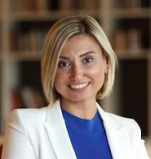
Associate Director for Education: Ilkay Altıntaş, Chief Data Science Officer of the San Diego Supercomputer Center; Division Director of Cyberinfrastructure and Convergence Research and Education; and a Founding Faculty Fellow of the Halıcıoğlu Data Science Institute. Dr. Altıntaş’ specialty is in scientific workflows and cyberinfrastructure systems; she leads collaborative teams to deliver impactful results through making computational data science work more reusable, programmable, scalable, and reproducible.
STEM Champions:
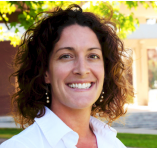
Rommie Amaro Professor and Endowed Chair, Chemistry and Biochemistry; Director of Visible Molecular Cell Consortium; and Co-Director, Drug Design Data Resource. Dr. Amaro’s research is broadly concerned with the development and application of state-of-the-art computational and theoretical techniques to investigate the structure, function, and dynamics of complex biological systems.
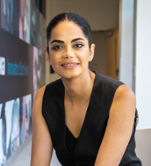 Kiana Aran, Associate Professor of Bioengineering and Medicine. Dr. Aran develops bioelectronics for multi-omics studies, targeted drug delivery, and studying the mechanisms of aging. She pioneers approaches to fuse CRISPR and electronics to improve the quality of genotyping and gene editing. Dr. Aran is also a founder of two San Diego biotechnology companies. Her efforts have been recognized with numerous awards including the Clinical OMICs 10 under 40 Award, Athena Pinnacle Award in Life Sciences, and NSF Career Award, in addition to multiple NSF, NIH, Department of Defense, NASA and Gates Foundation grants.
Kiana Aran, Associate Professor of Bioengineering and Medicine. Dr. Aran develops bioelectronics for multi-omics studies, targeted drug delivery, and studying the mechanisms of aging. She pioneers approaches to fuse CRISPR and electronics to improve the quality of genotyping and gene editing. Dr. Aran is also a founder of two San Diego biotechnology companies. Her efforts have been recognized with numerous awards including the Clinical OMICs 10 under 40 Award, Athena Pinnacle Award in Life Sciences, and NSF Career Award, in addition to multiple NSF, NIH, Department of Defense, NASA and Gates Foundation grants.
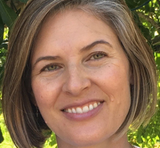 Elsa Cleland, Professor and Vice Chair, Ecological, Behavior & Evolution Section of the Division of Biological Sciences. Dr. Cleland studies the potential for ecological theory to predict how plant communities and ecosystems will respond to global environmental changes, including climate change and competition from invasive plant species. She is particularly interested in seasonal variation in species activity among native and invasive plant communities.
Elsa Cleland, Professor and Vice Chair, Ecological, Behavior & Evolution Section of the Division of Biological Sciences. Dr. Cleland studies the potential for ecological theory to predict how plant communities and ecosystems will respond to global environmental changes, including climate change and competition from invasive plant species. She is particularly interested in seasonal variation in species activity among native and invasive plant communities.
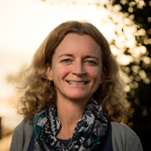 Helen Amanda Fricker, Professor of Geophysics in the Cecil H. and Ida M. Green Institute of Geophysics and Planetary Physics at Scripps Institution of Oceanography. Dr. Fricker's research focuses on ice sheets in Antarctica and Greenland and their role in the climate system. She uses a combination of satellite radar and laser altimetry and other remote-sensing data to understand ice sheet processes. Dr. Fricker is widely recognized for her discovery of active sub-glacial lakes and her innovative research into Antarctic ice shelf mass budget processes such as iceberg calving and basal melting and freezing.
Helen Amanda Fricker, Professor of Geophysics in the Cecil H. and Ida M. Green Institute of Geophysics and Planetary Physics at Scripps Institution of Oceanography. Dr. Fricker's research focuses on ice sheets in Antarctica and Greenland and their role in the climate system. She uses a combination of satellite radar and laser altimetry and other remote-sensing data to understand ice sheet processes. Dr. Fricker is widely recognized for her discovery of active sub-glacial lakes and her innovative research into Antarctic ice shelf mass budget processes such as iceberg calving and basal melting and freezing.
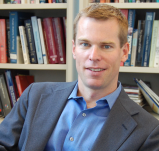 Trey Ideker, Professor of Medicine, Bioengineering and Computer Science; former Chief of Genetics; Director of the National Resource for Network Biology; and the Co-Director of the Cancer Cell Map and Psychiatric Cell Map Initiatives. Dr. Ideker is a pioneer in genomic, transcriptomic, and proteomic analysis and in the theory and practice of Systems Biology.
Trey Ideker, Professor of Medicine, Bioengineering and Computer Science; former Chief of Genetics; Director of the National Resource for Network Biology; and the Co-Director of the Cancer Cell Map and Psychiatric Cell Map Initiatives. Dr. Ideker is a pioneer in genomic, transcriptomic, and proteomic analysis and in the theory and practice of Systems Biology.
Ralph Keeling, Professor of Geochemistry in the Geosciences Research Division of Scripps Institution of Oceanography, current program director of the Scripps CO2 Program, and PI for the Atmospheric Oxygen Research Group. Dr. Keeling’s research focuses on atmospheric composition, the carbon cycle, and climate change. He is considered a leading investigator of the global oxygen cycle for his precise measurements and analysis techniques.
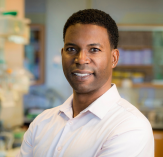 Gentry Patrick, Professor of Neurobiology, Director of the Center for Empathy and Social Justice in Human Health, Director of Mentorship and Diversity for Biological Sciences, and former Associate Director of the Neurosciences Graduate Program. Dr. Patrick is the creator and Director of the PATHS scholars program designed to mitigate barriers and establish an infrastructure of resources for underrepresented students in STEM.
Gentry Patrick, Professor of Neurobiology, Director of the Center for Empathy and Social Justice in Human Health, Director of Mentorship and Diversity for Biological Sciences, and former Associate Director of the Neurosciences Graduate Program. Dr. Patrick is the creator and Director of the PATHS scholars program designed to mitigate barriers and establish an infrastructure of resources for underrepresented students in STEM.
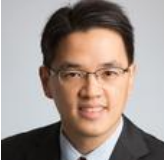 Shyue Ping Ong, Professor of NanoEngineering. Dr. Ong’s research focuses on application of first principles calculations and other computational techniques in the design, development, and investigation of new energy materials. Dr. Ong received his PhD in Materials Science and Engineering from the Massachusetts Institute of Technology (MIT) in 2011. He was subsequently appointed as a Senior Research Associate at MIT. Dr. Ong's research and teaching vision is to be a leader in bringing forth a data-driven future for materials design.
Shyue Ping Ong, Professor of NanoEngineering. Dr. Ong’s research focuses on application of first principles calculations and other computational techniques in the design, development, and investigation of new energy materials. Dr. Ong received his PhD in Materials Science and Engineering from the Massachusetts Institute of Technology (MIT) in 2011. He was subsequently appointed as a Senior Research Associate at MIT. Dr. Ong's research and teaching vision is to be a leader in bringing forth a data-driven future for materials design.
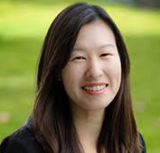 Andrea Tao, Professor of NanoEngineering. Dr. Tao earned her A.B. in Chemistry and Physics from Harvard University in 2002 and her Ph.D. in Chemistry from UC Berkeley in 2007, where she conducted her dissertation research on colloidal synthesis and self-assembly. Tao’s research centers on the synthesis and surface chemistry of nanoscale materials, with an emphasis on developing new approaches for rational assembly and integration into composites and biological systems.
Andrea Tao, Professor of NanoEngineering. Dr. Tao earned her A.B. in Chemistry and Physics from Harvard University in 2002 and her Ph.D. in Chemistry from UC Berkeley in 2007, where she conducted her dissertation research on colloidal synthesis and self-assembly. Tao’s research centers on the synthesis and surface chemistry of nanoscale materials, with an emphasis on developing new approaches for rational assembly and integration into composites and biological systems.
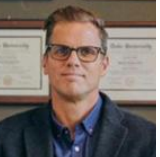 Michael Todd, Professor of Structural Engineering. Dr. Todd received his Ph.D. in Mechanical Engineering and Materials Science from Duke as an NSF Graduate Research Fellow. His research applies to civil, mechanical, and aerospace structural systems. Dr. Todd focuses on developing tools from structural vibrations, nonlinear dynamics, and time series modeling fields for structural health monitoring and damage prognosis strategies.
Michael Todd, Professor of Structural Engineering. Dr. Todd received his Ph.D. in Mechanical Engineering and Materials Science from Duke as an NSF Graduate Research Fellow. His research applies to civil, mechanical, and aerospace structural systems. Dr. Todd focuses on developing tools from structural vibrations, nonlinear dynamics, and time series modeling fields for structural health monitoring and damage prognosis strategies.
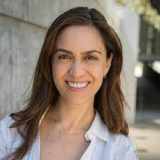 Elizabeth Villa, Associate Professor of Molecular Biology and HHMI Investigator. Dr. Villa completed her PhD in Biophysics at the University of Illinois at Urbana-Champaign as a Fulbright Fellow. She was the recipient of an NIH Director’s New Innovator Award to pursue high-risk high-reward research developing cryo-electron tomography (cryo-ET) and new technological and computational techniques to advance structural cell biology.
Elizabeth Villa, Associate Professor of Molecular Biology and HHMI Investigator. Dr. Villa completed her PhD in Biophysics at the University of Illinois at Urbana-Champaign as a Fulbright Fellow. She was the recipient of an NIH Director’s New Innovator Award to pursue high-risk high-reward research developing cryo-electron tomography (cryo-ET) and new technological and computational techniques to advance structural cell biology.
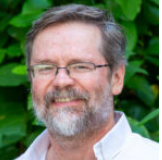 Frank Würthwein, Professor of Physics; Director of the San Diego Supercomputer Center; and Executive Director of the Open Science Grid (OSG), a national cyber infrastructure to advance the sharing of resources, software, and knowledge. As a physicist, Dr. Würthwein’s interest lies in searching for new phenomena at the high energy frontier with the Compact Muon Solenoid detector at the Large Hadron Collider, CERN; and as an experimentalist, he is interested in instrumentation and data analysis.
Frank Würthwein, Professor of Physics; Director of the San Diego Supercomputer Center; and Executive Director of the Open Science Grid (OSG), a national cyber infrastructure to advance the sharing of resources, software, and knowledge. As a physicist, Dr. Würthwein’s interest lies in searching for new phenomena at the high energy frontier with the Compact Muon Solenoid detector at the Large Hadron Collider, CERN; and as an experimentalist, he is interested in instrumentation and data analysis.
AI Champions:
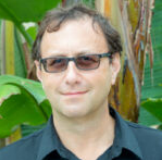 Mikhail Belkin, Professor of Computer Science and Engineering and Halıcıoğlu Data Science Institute. Dr. Belkin’s research interests are in the theory and applications of machine learning and data analysis. He is a recipient of an NSF Career Award and has served on the editorial boards of the Journal of Machine Learning Research, IEEE Pattern Analysis and Machine Intelligence, and SIAM Journal on Mathematics of Data Science.
Mikhail Belkin, Professor of Computer Science and Engineering and Halıcıoğlu Data Science Institute. Dr. Belkin’s research interests are in the theory and applications of machine learning and data analysis. He is a recipient of an NSF Career Award and has served on the editorial boards of the Journal of Machine Learning Research, IEEE Pattern Analysis and Machine Intelligence, and SIAM Journal on Mathematics of Data Science.
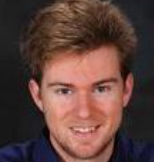 Julian McAuley, Professor of Computer Science and Engineering. Dr. McAuley’s research focuses on the linguistic, temporal, and social dimensions of opinions and behavior in social networks and other online communities. This includes understanding the facets of people’s opinions, the processes by which people “acquire tastes” for gourmet foods and beers, or even the visual dimensions that make clothing items compatible.
Julian McAuley, Professor of Computer Science and Engineering. Dr. McAuley’s research focuses on the linguistic, temporal, and social dimensions of opinions and behavior in social networks and other online communities. This includes understanding the facets of people’s opinions, the processes by which people “acquire tastes” for gourmet foods and beers, or even the visual dimensions that make clothing items compatible.
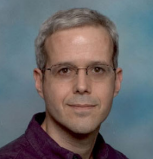 Alon Orlitsky, Professor of Electrical and Computer Engineering. Dr. Orlitsky’s research concerns the intersection between information theory, machine learning, and communication, with particular interest in data modeling, processing, and analysis. He is the founding director of UC San Diego's Information Theory and Applications Center and holds the QUALCOMM Endowed Chair in Information Theory and Its Applications.
Alon Orlitsky, Professor of Electrical and Computer Engineering. Dr. Orlitsky’s research concerns the intersection between information theory, machine learning, and communication, with particular interest in data modeling, processing, and analysis. He is the founding director of UC San Diego's Information Theory and Applications Center and holds the QUALCOMM Endowed Chair in Information Theory and Its Applications.
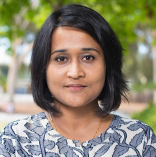 Piya Pal, Associate Professor of Electrical and Computer Engineering. Dr. Pal's research interests include high dimensional statistical signal processing and data analysis, energy efficient sketching and sampling for statistical inference, compressive sensing and sparse estimation, tensor methods, convex and non-convex optimization, optical signal processing and high resolution imaging, and statistical learning.
Piya Pal, Associate Professor of Electrical and Computer Engineering. Dr. Pal's research interests include high dimensional statistical signal processing and data analysis, energy efficient sketching and sampling for statistical inference, compressive sensing and sparse estimation, tensor methods, convex and non-convex optimization, optical signal processing and high resolution imaging, and statistical learning.
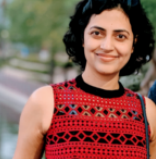 Barna Saha, Associate Professor of Computer Science and Engineering and Halıcıoğlu Data Science Institute. Dr. Saha’s primary research focus is on Theoretical Computer Science, specifically Algorithm Design. She is passionate about diversity and teaching, and seeing students succeed from all backgrounds. She is a recipient of the Presidential Early Career Award (PECASE), the highest honor given by the White House to early career scientists; a Sloan fellowship; an NSF CAREER Award; Harry E. Gruber endowed chair; and multiple paper awards.
Barna Saha, Associate Professor of Computer Science and Engineering and Halıcıoğlu Data Science Institute. Dr. Saha’s primary research focus is on Theoretical Computer Science, specifically Algorithm Design. She is passionate about diversity and teaching, and seeing students succeed from all backgrounds. She is a recipient of the Presidential Early Career Award (PECASE), the highest honor given by the White House to early career scientists; a Sloan fellowship; an NSF CAREER Award; Harry E. Gruber endowed chair; and multiple paper awards.
 Yuanyuan Shi, Assistant Professor of Electrical and Computer Engineering. Dr. Shi's research interests primarily lie in the intersection of machine learning and control, with applications to power & energy systems, and broader physical applications. She is a recipient of the NSF CAREER Award and the Schmidt Sciences AI2050 Early Career Fellowship.
Yuanyuan Shi, Assistant Professor of Electrical and Computer Engineering. Dr. Shi's research interests primarily lie in the intersection of machine learning and control, with applications to power & energy systems, and broader physical applications. She is a recipient of the NSF CAREER Award and the Schmidt Sciences AI2050 Early Career Fellowship.
 Yusu Wang, Professor in the Halicioglu Data Science Institute (HDSI). She is also the Director for the NSF National AI Institute TILOS. Dr. Wang primarily works in geometric deep learning, graph learning, representation learning and neural algorithmic reasoning. She has also applied geometric and topological data analysis methods to various application fields, including in neuroscience, material science and particle physics.
Yusu Wang, Professor in the Halicioglu Data Science Institute (HDSI). She is also the Director for the NSF National AI Institute TILOS. Dr. Wang primarily works in geometric deep learning, graph learning, representation learning and neural algorithmic reasoning. She has also applied geometric and topological data analysis methods to various application fields, including in neuroscience, material science and particle physics.
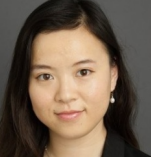 Rose Yu, Assistant Professor of Computer Science and Engineering and Halıcıoğlu Data Science Institute. Dr. Yu’s research interests lie primarily in machine learning, especially for large-scale spatiotemporal data, with a particular focus on the interplay between physics and machine learning.
Rose Yu, Assistant Professor of Computer Science and Engineering and Halıcıoğlu Data Science Institute. Dr. Yu’s research interests lie primarily in machine learning, especially for large-scale spatiotemporal data, with a particular focus on the interplay between physics and machine learning.
AI Fairness, Ethics, and Society:
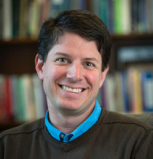 David Danks, Professor of Data Science and Philosophy and affiliate faculty in Computer Science and Engineering. Dr. Danks was recently appointed to the National AI Advisory Committee (NAIAC), an organization tasked with providing advice to the President and the National AI Initiative Office about artificial intelligence in the United States. His research interests are at the intersection of philosophy, cognitive science, and machine learning, using ideas, methods, and frameworks from each to advance our understanding of complex, interdisciplinary problems.
David Danks, Professor of Data Science and Philosophy and affiliate faculty in Computer Science and Engineering. Dr. Danks was recently appointed to the National AI Advisory Committee (NAIAC), an organization tasked with providing advice to the President and the National AI Initiative Office about artificial intelligence in the United States. His research interests are at the intersection of philosophy, cognitive science, and machine learning, using ideas, methods, and frameworks from each to advance our understanding of complex, interdisciplinary problems.
Information for UC San Diego Faculty: Successful Nominations
STEM faculty mentors who are interested in the use of AI in their field are encouraged to identify excellent candidates and support their application, and will be asked to submit a letter of nomination describing the scientific significance of the proposed project and the value of AI training to the applicant’s scholarship. For more information about sponsoring a candidate, including criteria for successful nominations, please view our short webinar below (also at at bit.ly/SchmidtAIFacultyWebinar).
Topics covered in the webinar:
- General information about the Schmidt AI in Science Postdocs Program at UC San Diego
- The application process
- What makes a good candidate for a Primary (STEM) Faculty Mentor as well as a Schmidt AI in Science Postdoc
- Successful outcomes for a Schmidt AI in Science Postdoc
- Q&A: Finding AI co-mentors and the AI co-mentor matching process, postdoctoral scholar eligibility, candidate evaluation criteria, and letters of recommendation.
FAQ
Applications and Eligibility
- When is the deadline to submit an application for the Schmidt AI in Science Postdocs Program?
- Applications for the 2026 cohort will open September 1, 2025.
- Applications for the 2026 cohort will open September 1, 2025.
- How do I apply for the Schmidt AI in Science Postdocs Program at UC San Diego?
- Qualified applicants should submit an application that includes a research statement emphasizing the promise of their research and demonstrating a clear understanding of how to apply AI to improve their science; a letter of nomination from their primary (STEM) faculty mentor at UC San Diego; and two additional letters of recommendation. Applications should be submitted via the Schmidt AI in Science Postdocs Program at UC San Diego Application Form.
- Qualified applicants should submit an application that includes a research statement emphasizing the promise of their research and demonstrating a clear understanding of how to apply AI to improve their science; a letter of nomination from their primary (STEM) faculty mentor at UC San Diego; and two additional letters of recommendation. Applications should be submitted via the Schmidt AI in Science Postdocs Program at UC San Diego Application Form.
- What should my letter-writers address in their letters of recommendation?
- The proposed primary (STEM) mentor at UC San Diego should submit a letter of nomination via the Letter of Nomination Submission Form that addresses the following:
- The applicant's proposed research and its scientific significance, and how training in AI methods and approaches through the Schmidt AI in Science Postdocs Program will enhance their science;
- The extent to which the applicant will participate in departmental and campus academic activities (e.g., seminar programs);
- The extent of the applicant's anticipated participation at national/international research meetings;
- The proposed primary mentor's involvement in mentoring for other programs designed to increase access and opportunity in higher education.
- Additional letters of recommendation that are not the proposed primary (STEM) mentor at UC San Diego should address the following:
- The novelty, quality and promise of the applicant's work;
- The potential for the nominee to leverage the training they would receive as a Fellow to pioneer and accelerate the adoption of innovative applications of AI in their field;
- If the applicant's Ph.D. is in progress, rate the likelihood of its completion by September 1 of the year in which the applicant would begin their postdoctoral appointment.
- The proposed primary (STEM) mentor at UC San Diego should submit a letter of nomination via the Letter of Nomination Submission Form that addresses the following:
- I am in the field of computer science and would like to conduct core AI research in computer science - am I eligible for this program?
- No, the Schmidt AI in Science Postdocs Program does not support core AI research in computer science; rather, it supports fellows learning and applying AI techniques to their research in the engineering, mathematical, and natural sciences.
- Am I eligible if I do not have U.S. citizenship or permanent residency?
- Yes. Upon acceptance of the award, successful applicants must present documents demonstrating that they are legally authorized to work in the United States. Visa sponsorship and work authorization is possible for successful applicants through a process that would be managed by the International Faculty and Scholars Office with the support of the UC San Diego faculty mentor.
- I have more than three years of experience as a postdoctoral scholar, but not at UC San Diego. Am I still eligible for the program?
- The postdoctoral fellowship prioritizes those with fewer than four years of experience as a postdoctoral scholar, whether at UC San Diego or elsewhere. In rare circumstances, exceptions can be made for outstanding candidates who are in their fourth year, but candidates with more than four years of postdoctoral experience at any institution will not be considered.
Mentors and Selection Process
- Q: How do I find a primary (STEM) faculty mentor?
- Applicants can identify potential faculty mentors through professional contacts in their field, as well as by reviewing the literature and UC San Diego department websites for faculty working in their field.
- How do I find an AI co-mentor?
- The Schmidt AI in Science Postdocs Program at UC San Diego Selection Committee will match successful applicants to AI co-mentors during the review process.
- What are the expectations of the faculty mentors during the fellowship?
- Faculty mentors will be expected to play an active role in helping Fellows plan and achieve their research and professional goals, providing assessments of the novelty and research quality throughout the fellowship term. The STEM mentor will serve as the Fellow’s primary mentor and will be expected to provide intellectual leadership, guidance, and support while overseeing the Fellow’s research agenda in their home department. The AI mentor will be expected to co-advise the Fellow on their use of AI methods. Both STEM and AI co-mentors will help guide Fellows toward independent research careers. Mentors should also assist Fellows in securing opportunities to participate in national and international research meetings and in facilitating connections among scholars in their fields.
- Postdoctoral scholars are hosted and appointed within their Primary (STEM) Mentor's department. As such, the Primary (STEM) Mentor is responsible for all other support normally provided to their postdocs, including but not limited to financial support for Fellows' research and equipment needs. Hosting departments are responsible for any university-imposed visa fees if applicable.
- Who will review my application?
- Each year, a committee of two faculty members from each unit within the STEM areas of excellence (engineering, physical sciences, biological sciences, biomedical and health sciences, and oceanography and earth sciences) and three faculty members from AI foundational areas of excellence (machine learning, Information theory and statistics, robotics, cognitive science) at UC San Diego identify the cohort of Schmidt AI in Science Postdocs and match each Fellow with an AI co-mentor.
- What criteria are considered by the selection committee when reviewing applications?
- Applicants are evaluated based on the promise of their research agenda and their understanding of how to apply AI to improve their science. The selection committee also takes the degree of academic diversity among each cohort into consideration. Strong reference letters, particularly by the primary faculty mentor, are a critical component of a successful application.
Fellowship Terms
- What are the start and end dates for the fellowship? Is the award renewable?
- The Schmidt AI in Science Postdocs Program at UC San Diego provides funding for a two-year postdoctoral term beginning on October 1 of the year following a selectee's application submission and ending on September 30 two years after the Fellow's start date. The award is not renewable.
- What are the annual salary and benefits provided?
- The annual salary for Schmidt AI in Science Postdocs at UC San Diego starts at $85,000, with annual increases. The award includes comprehensive benefits including medical, dental, vision, life and AD&D insurance, short-term disability insurance, voluntary long-term disability insurance, PTO, and paid sick and parental leave benefits.
- Will my travel and enrollment in training and education related to my research as a Schmidt AI in Science Postdoc be paid for by the program?
- Formal AI education, certificate programs, continuing education, classes, and lectures organized by UC San Diego and the Office of Postdoctoral Scholar Affairs are paid for by the program. Modest additional funding for conference travel and professional development activities will also be made available to Postdocs during their time in the program.
- Formal AI education, certificate programs, continuing education, classes, and lectures organized by UC San Diego and the Office of Postdoctoral Scholar Affairs are paid for by the program. Modest additional funding for conference travel and professional development activities will also be made available to Postdocs during their time in the program.
- Do postdocs need to be in residence at UC San Diego during the fellowship?
- Yes, award recipients are expected to have a presence at UC San Diego with the exception of time away for conferences and other scholarly activities.
- What kinds of professional, career, and community-building resources will I have access to as a Schmidt AI in Science Postdoc?
- Schmidt AI in Science Postdocs are part of a diverse community of nearly 1,500 postdoctoral scholars at UC San Diego and have access to over one hundred professional and career development, wellness, community-building, and other resources provided by the Office of Postdoctoral Scholar Affairs and campus and community partners. More information about resources and training for postdocs, including the EPIC Postdoctoral Training Program and Bootcamp, can be found on the Office of Postdoctoral Scholar Affairs website.
Other Questions
- Where can I sign up to be notified about upcoming important dates for the program, such as recruitment periods?
- Please submit a program interest form.
- Whom can I reach out to with specific questions?
- You may email SchmidtAI@ucsd.edu if you have any questions.
Non Discrimination Statement: In accordance with applicable Federal and State law and University policy, the University of California does not discriminate, or grant preferences, on the basis of race, color, national origin, religion, sex, disability, and/or other protected categories.More information about Proposition 209 can be found here.More information about the University of California Anti-Discrimination Policy can be found here.
